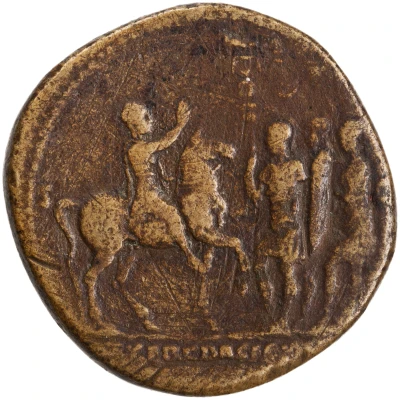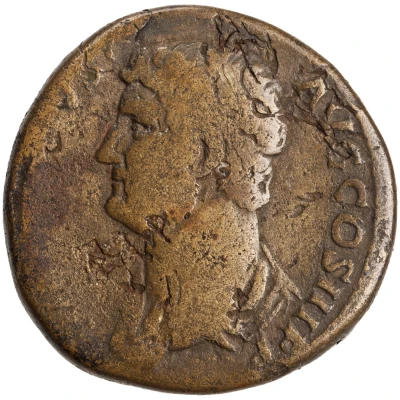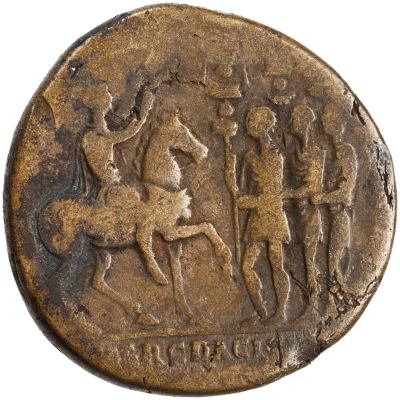


© American Numismatic Society (ANS)
Sestertius - Hadrian // EXERC DACICVS S C in exergue in field
| Orichalcum | 25 g | 32.5 mm |
| Issuer | Rome › Roman Empire (27 BC - 395 AD) |
|---|---|
| Emperor | Hadrian (Publius Aelius Hadrianus) (117-138) |
| Type | Standard circulation coin |
| Years | 130-133 |
| Value | 1 Sestertius = ¼ Denarius |
| Currency | Denarius, Reform of Augustus (27 BC – AD 215) |
| Composition | Orichalcum |
| Weight | 25 g |
| Diameter | 32.5 mm |
| Shape | Round (irregular) |
| Technique | Hammered |
| Demonetized | Yes |
| Updated | 2024-10-06 |
| Numista | N#256407 |
|---|---|
| Rarity index | 100% |
Reverse
Hadrian riding right, raising hand; before him, a crowd of three soldiers with standards.
Script: Latin
Lettering:
// EXERC DACICVS
S C (in exergue in field)
Translation:
Exercitus Dacicus. Senatus Consultum.
Army of Dacia. Decree of the senate.
Comment
Source: Online Coins of the Roman Empire (OCRE)Interesting fact
The Sestertius coin , which features Emperor Hadrian, is notable for its depiction of the Roman goddess Salus on the reverse side. Salus is shown standing left, holding a patera (a shallow dish used for ritual offerings) and a snake, symbolizing the goddess' association with health and well-being. This imagery was particularly significant during Hadrian's reign, as he was known for his efforts to improve public health and sanitation throughout the empire. The coin's design, therefore, serves as a representation of the emperor's commitment to the welfare of his people.

